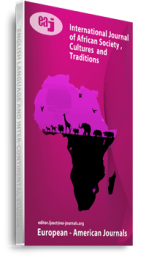The general impression created is that cultural norms used in dispute resolution in chiefs’ courts in Ghana violate women’s rights. Analysis of these norms and proceedings in chiefs’ courts is important because chiefs’ courts play a tremendous role in dispute resolution among the ethnic groups. The units of analyses are Anlo and Asante of Ghana. The findings of the research are that chiefs’ courts do not discriminate against women in gender neutral cases and that the bias occurs when the case is gender sensitive. Women also have limited participation as decision-makers in chiefs’ courts, a factor, among others, that may contribute to the bias against them. There is need to modernise operations in chiefs’ courts to make it gender friendly. Moreover, since gender issues tend to affect women’s property rights, and are often used as central reference points for the handling of disputes, there is need for social re-orientation of people. The research is significant because, inter alia, it contributes towards the strengthening of procedures in chiefs’ courts, and in the reform of cultural norms/laws/principles that are gender discriminatory
Keywords: Chiefs’ courts, Cultural norms/laws/principles, Dispute, Dispute resolution, Inheritance, Property, Property inheritance

